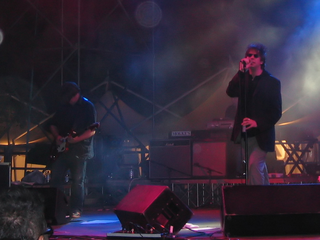
Echo & the Bunnymen is an English rock band formed in Liverpool in 1978. The original line-up consisted of vocalist Ian McCulloch, guitarist Will Sergeant and bassist Les Pattinson. By 1980, Pete de Freitas joined as the band's drummer.

Crocodiles is the debut album by the English post-punk band Echo & the Bunnymen. It was released on 18 July 1980 in the United Kingdom and on 17 December 1980 in the United States. The album reached number 17 on the UK Albums Chart. "Pictures on My Wall" and "Rescue" had previously been released as singles.
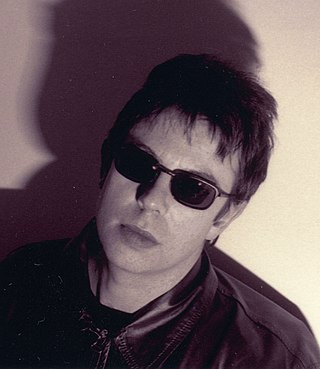
Ian Stephen McCulloch, is an English singer-songwriter and musician, best known as the lead vocalist of the rock band Echo & the Bunnymen.
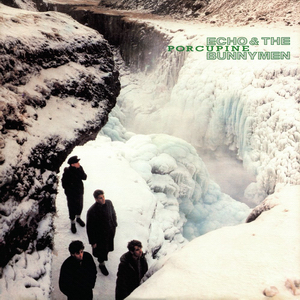
Porcupine is the third studio album by the English post-punk band Echo & the Bunnymen. First released on 4 February 1983, it became the band's highest-charting release when it reached number two on the UK Albums Chart despite initially receiving poor reviews. It also reached number 137 on the American Billboard 200, number 85 on the Canadian RPM 100 Albums and number 24 on the Swedish chart. In 1984, the album was certified gold by the British Phonographic Industry. The album includes the singles "The Back of Love" and "The Cutter."

Echo & the Bunnymen is the fifth studio album by the English post-punk band Echo & the Bunnymen, their last with drummer Pete de Freitas, who died in 1989 in a motorcycle accident, aged 27. The album was produced by Laurie Latham; the sessions took place in Germany, Belgium, London and Liverpool, following an aborted attempt at recording the tracks without de Freitas and with producer Gil Norton. With Latham being an exacting producer, and singer Ian McCulloch receiving star treatment and drinking heavily, the recording was more difficult than the band had initially hoped. The album made more use of keyboards than their previous albums, which had been string-heavy. Three singles were issued: "The Game", "Lips Like Sugar" and "Bedbugs and Ballyhoo".

Reverberation is the sixth studio album by the English rock band Echo & the Bunnymen. The album was released amidst a line-up change for the group, due to the departure of vocalist Ian McCulloch and the death of drummer Pete de Freitas. The remaining members, guitarist Will Sergeant and bassist Les Pattinson, were joined by ex-St. Vitus Dance singer Noel Burke, keyboard player Jake Brockman and drummer Damon Reece. The album was produced by former Beatles engineer Geoff Emerick at Ridge Farm Studio in Surrey, England, and had a more pronounced psychedelic sound than the group's previous releases.
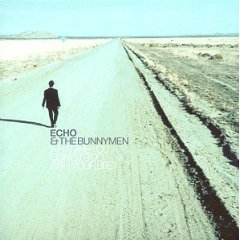
What Are You Going to Do with Your Life? is the eighth studio album by the English rock band Echo & the Bunnymen. The album saw the departure of bassist Les Pattinson from the group, partly due to disagreements with vocalist Ian McCulloch; McCulloch and the remaining band member, guitarist Will Sergeant, subsequently recorded the record with session musicians. The London Metropolitan Orchestra provided backing music and the American rap rock band Fun Lovin' Criminals appeared as guest musicians on two tracks. The album was produced by Alan Douglas and Echo & the Bunnymen and it was recorded at various locations throughout England. Feeling sidelined during the recording of the album, Sergeant described it as "probably the worst time in my whole life".

Leslie Thomas Pattinson is an English musician, best known for his work as the bassist and co-writer of the Liverpool-based band Echo & the Bunnymen, along with vocalist Ian McCulloch and guitarist Will Sergeant. He was brought up in Aughton, Lancashire and attended nearby Deyes High School in Maghull, where he and Sergeant were classmates and became friends.

The discography of Echo & the Bunnymen, an English post-punk band which formed in 1978, consists of thirteen studio albums, ten live albums, nine compilation albums, eight extended plays (EP), and thirty singles on Zoo Records; WEA and its subsidiaries, Korova, Sire Records, London Records and Rhino; Cooking Vinyl; and Ocean Rain Records, as well as five music VHS/DVDs, and twenty-two music videos.
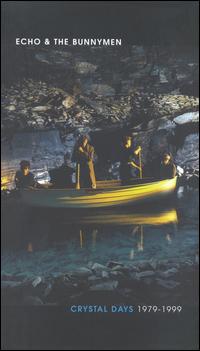
Crystal Days: 1979–1999 is a four CD box set by Echo & the Bunnymen which was released in July 2001. It is a retrospective compilation of the band's work between 1979 and 1999. The first three cds include most of their singles, several album tracks, some alternate mixes, unreleased songs and B-sides published on 7-inch and 12-inch vinyls, plus versions recorded for John Peel sessions on BBC Radio 1. The fourth CD is a live cd with cover versions.
"Over the Wall" is a single by Echo & the Bunnymen which was released in 1981 in Australia and is from the 1981 album Heaven Up Here. The b-side of the single, which was not released in any other country, was the title track from the band's 1980 debut album, Crocodiles. Unlike the band's previous singles, "Over the Wall" was released without a picture sleeve.
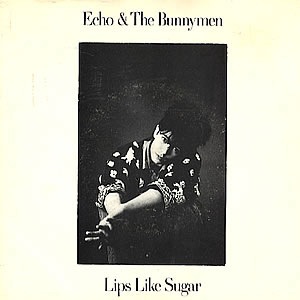
"Lips Like Sugar" is a single by Echo & the Bunnymen which was released in August 1987. It was the second single from their 1987 eponymous album.

"Inside Me, Inside You" is a single by Echo & the Bunnymen which was released in 1992. It was the third and final single to be released by the band with Noel Burke as the vocalist. It was released on Euphoric Records as both a CD single (E002CD) and a 12-inch single (E002T).
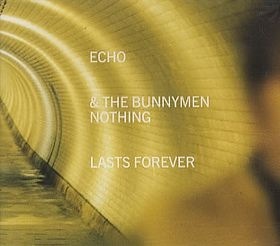
"Nothing Lasts Forever" is a single by Echo & the Bunnymen which was released in 1997. It was the first single released after Ian McCulloch, Will Sergeant and Les Pattinson reformed the band. It was also the first single to be released from their 1997 album, Evergreen. It reached number 8 on the UK Singles Chart. The single was released as a 7-inch single and as two separate CD versions – apart from the title track all three releases had different track listings. The French and German versions of the CD releases also had different track listings.
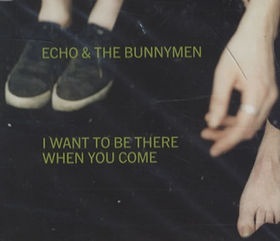
"I Want to Be There (When You Come)" is a single by Echo & the Bunnymen which was released in September 1997. It was the second single released after Ian McCulloch, Will Sergeant and Les Pattinson reformed the band. It was also the second single to be released from their 1997 album, Evergreen. It reached number 30 on the UK Singles Chart, number 26 on the US Modern Rock Tracks chart, and number 16 on the Canadian RPM Alternative 30 chart.
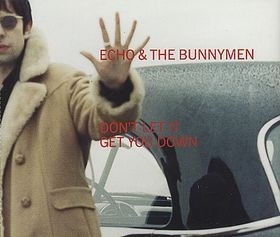
"Don't Let It Get You Down" is a single by Echo & the Bunnymen which was released in November 1997. It was the third single released after Ian McCulloch, Will Sergeant and Les Pattinson reformed the band. It was also the third single to be released from their 1997 album, Evergreen. It reached number 50 on the UK Singles Chart.
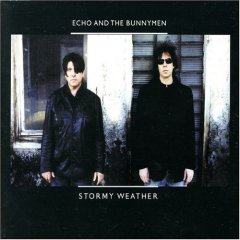
"Stormy Weather" is a single by Echo & the Bunnymen which was released on 5 September 2005 on the Cooking Vinyl label. It was the first single to be released from the 2005 album, Siberia. It reached number 55 on the UK Singles Chart.
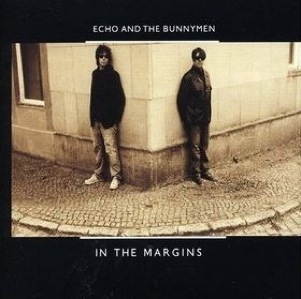
"In the Margins" is a single by Echo & the Bunnymen that was released on 31 October 2005 in the UK and on 3 November 2005 in the US It was the second single to be released from the 2005 album, Siberia. It reached number 226 on the UK Singles Chart.

World Tour E.P. is an EP that was released in 1997 by Echo & the Bunnymen. The EP was released on CD by PolyGram in Japan. In 1998 it was released by London Records in Australia.

Avalanche is an EP that was released in October 2000 by Echo & the Bunnymen. The EP was released on CD by Gimme Music and was only available to buy on the internet.


















